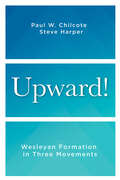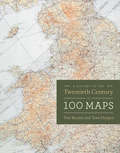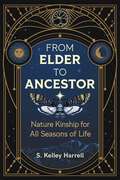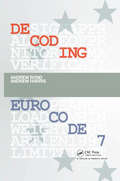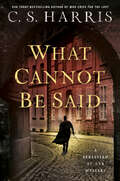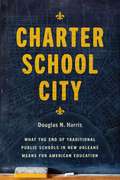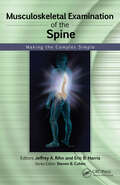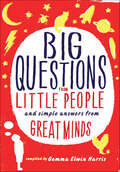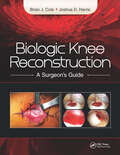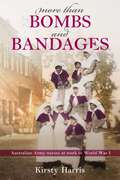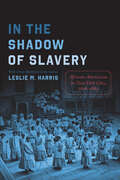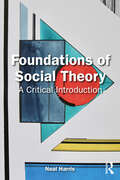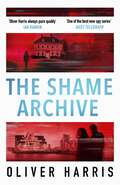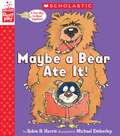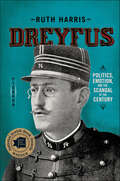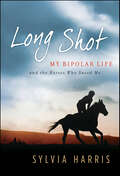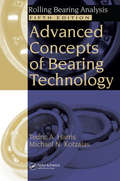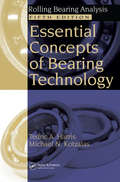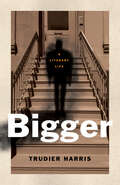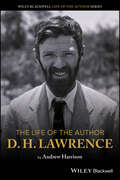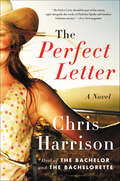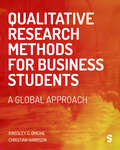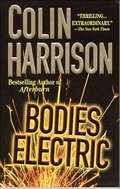- Table View
- List View
Upward!: Wesleyan Formation in Three Movements
by Steve Harper Paul W. ChilcoteA powerful guide for new and longtime United Methodists.Upward! is a simple but brilliant course on Wesleyanism for regular people. It thoroughly and methodically guides readers through the distinctive qualities of the Wesleyan way—the theology, practices, habits, and attitudes that characterize Methodist people. Paul W. Chilcote and Steve Harper, two of Methodism’s most beloved teachers, offer this extraordinary book as an invitation to a life of wisdom and wonder in our current world. It is a book of both instruction and celebration, teaching (or reminding) us what makes the Wesleyan way most gracious and lovely. Pastors and other leaders will use Upward as their primary resource for sharing the Wesleyan approach. It can be used in a wide variety of ways and settings—as a sermon series, congregation-wide study, or for new member classes, to name a few. Individuals will use the book as a personal study, ideally in connection with others. Upward! helps leaders and readers to:- correct misconceptions about Wesleyan theology- clarify and reclaim Wesleyan theology- gain a new framework for understanding Wesleyan theology and sharing it with others
A History of the Twentieth Century in 100 Maps
by Tom Harper Tim BryarsThe twentieth century was a golden age of mapmaking, an era of cartographic boom. Maps proliferated and permeated almost every aspect of daily life, not only chronicling geography and history but also charting and conveying myriad political and social agendas. Here Tim Bryars and Tom Harper select one hundred maps from the millions printed, drawn, or otherwise constructed during the twentieth century and recount through them a narrative of the century’s key events and developments. As Bryars and Harper reveal, maps make ideal narrators, and the maps in this book tell the story of the 1900s—which saw two world wars, the Great Depression, the Swinging Sixties, the Cold War, feminism, leisure, and the Internet. Several of the maps have already gained recognition for their historical significance—for example, Harry Beck’s iconic London Underground map—but the majority of maps on these pages have rarely, if ever, been seen in print since they first appeared. There are maps that were printed on handkerchiefs and on the endpapers of books; maps that were used in advertising or propaganda; maps that were strictly official and those that were entirely commercial; maps that were printed by the thousand, and highly specialist maps issued in editions of just a few dozen; maps that were envisaged as permanent keepsakes of major events, and maps that were relevant for a matter of hours or days. As much a pleasure to view as it is to read, A History of the Twentieth Century in 100 Maps celebrates the visual variety of twentieth century maps and the hilarious, shocking, or poignant narratives of the individuals and institutions caught up in their production and use.
From Elder to Ancestor: Nature Kinship for All Seasons of Life
by S. Kelley Harrell• Explains the importance of creating a direct personal connection with Nature and how it is key to becoming an elder who will go on to become a wise Ancestor• Presents exercises and rituals to awaken and deepen your animistic connection to the world and help you intentionally craft yourself as a fit elder• Explores deep spiritual work with the Sacred Self, including shadow work and trauma honoring, as well as practices to help you heal your family lineFor millennia people connected with the Ancestors as part of their regular spiritual practice, seeking wisdom and inspired vitality from those who came before. Each member of a community grew up guided by sage elders, naturally walking the path into fit elderhood themselves and, upon their good deaths, becoming wise, capable Ancestors to whom their descendants could turn.Revealing how to restore the path from fit elder to wise Ancestor, S. Kelley Harrell explores the spiritual, cultural, and ancestral aspects of aging well. She explains the importance of creating a direct personal connection with Nature and of respecting the spirits who surround us, including asking their permission before engaging them in ritual or healing work. Exploring the concept of animism and how it is key to moving from elder to Ancestor, the author shares exercises for awakening and deepening your animistic connection to the world around you as well as rituals for embodiment and grounding.The author also examines the most powerful obstacles to dying well, exploring deep spiritual work with Sacred Self, including shadow work, the initiatory rite of heartbreak, and how to honor past traumas and dysfunctional patterns. She looks at forging a supportive connection with our Sacred Parents—the first Ancestors—as well as specific practices to help you heal your family line. She shows how recognizing that you are Nature—a part of the sacred order—allows you to begin rewilding and to honor your own sacredness. Showing that initiation into elderhood is the work of our lives, this book explains how, through personal introspection and engagement with the living world around us, we can cultivate our unique way to elder well.
Decoding Eurocode 7
by Andrew Harris Andrew BondThe purpose and impact of Eurocode 7, the new geotechnical design standard, is explained in this guide. The authors describe the Principles and Application Rules embodied in the standard to show how these differ from traditional (UK) practice.Essential information is brought together and presented succinctly in summary tables and diagrams. Numerous detailed worked examples illustrate important concepts, and are based on an existing design problem for which a traditional solution is known. A critical appraisal is given of the impact of Eurocode 7 on current UK design practice.Selected Contents 1. Introduction 2. Structural design 3. Geotechnical design 4. Design assisted by testing 5. Ground characterization 6.
What Cannot Be Said (Sebastian St. Cyr Mystery #19)
by C. S. HarrisA seemingly idyllic summer picnic ends in a macabre murder that echoes a pair of slayings fourteen years earlier in this riveting new historical mystery from the USA Today bestselling author of Who Cries for the Lost.July 1815: The Prince Regent&’s grandiose plans to celebrate Napoléon&’s recent defeat at Waterloo are thrown into turmoil when Lady McInnis and her daughter Emma are found brutally murdered in Richmond Park, their bodies posed in a chilling imitation of the stone effigies once found atop medieval tombs. Bow Street magistrate Sir Henry Lovejoy immediately turns to his friend Sebastian St. Cyr, Viscount Devlin, for help with the investigation. For as Devlin discovers, Lovejoy&’s own wife and daughter were also murdered in Richmond Park, their bodies posed in the same bizarre postures. A traumatized ex-soldier was hanged for their killings. So is London now confronting a malicious copyist? Or did Lovejoy help send an innocent man to the gallows?Aided by his wife, Hero, who knew Lady McInnis from her work with poor orphans, Devlin finds himself exploring a host of unsavory characters from a vicious chimney sweep to a smiling but decidedly lethal baby farmer. Also coming under increasing scrutiny is Sir Ivo McInnis himself, along with a wounded Waterloo veteran—who may or may not have been Laura McInnis&’s lover—and a charismatic young violinist who moonlights as a fencing master and may have formed a dangerous relationship with Emma. But when Sebastian&’s investigation turns toward man about town Basil Rhodes, he quickly draws the fury of the Palace, for Rhodes is well known as the Regent&’s favorite illegitimate son.Then Lady McInnis&’s young niece and nephew are targeted by the killer, and two more women are discovered murdered and arranged in similar postures. With his own life increasingly in danger, Sebastian finds himself drawn inexorably toward a conclusion far darker and more horrific than anything he could have imagined.
Charter School City: What the End of Traditional Public Schools in New Orleans Means for American Education
by Douglas N. HarrisIn the wake of the tragedy and destruction that came with Hurricane Katrina in 2005, public schools in New Orleans became part of an almost unthinkable experiment—eliminating the traditional public education system and completely replacing it with charter schools and school choice. Fifteen years later, the results have been remarkable, and the complex lessons learned should alter the way we think about American education. New Orleans became the first US city ever to adopt a school system based on the principles of markets and economics. When the state took over all of the city’s public schools, it turned them over to non-profit charter school managers accountable under performance-based contracts. Students were no longer obligated to attend a specific school based upon their address, allowing families to act like consumers and choose schools in any neighborhood. The teacher union contract, tenure, and certification rules were eliminated, giving schools autonomy and control to hire and fire as they pleased. In Charter School City, Douglas N. Harris provides an inside look at how and why these reform decisions were made and offers many surprising findings from one of the most extensive and rigorous evaluations of a district school reform ever conducted. Through close examination of the results, Harris finds that this unprecedented experiment was a noteworthy success on almost every measurable student outcome. But, as Harris shows, New Orleans was uniquely situated for these reforms to work well and that this market-based reform still required some specific and active roles for government. Letting free markets rule on their own without government involvement will not generate the kinds of changes their advocates suggest. Combining the evidence from New Orleans with that from other cities, Harris draws out the broader lessons of this unprecedented reform effort. At a time when charter school debates are more based on ideology than data, this book is a powerful, evidence-based, and in-depth look at how we can rethink the roles for governments, markets, and nonprofit organizations in education to ensure that America’s schools fulfill their potential for all students.
Musculoskeletal Examination of the Spine: Making the Complex Simple
by Eric Harris Jeffrey RihnThe physical examination of the spine can be a complex topic for professionals with all levels of clinical experience. How can advance concepts be taught in a user-friendly, clear format, while still providing necessary information for effective diagnosis and treatment of the spine?Musculoskeletal Examination of the Spine: Making the Complex Simple by Drs. Jeffrey A. Rihn and Eric B. Harris answers these questions. Written by experts, this easy-to-carry book provides a thorough review of the most common pathologic spine conditions, techniques for diagnosis, as well as the appropriate treatment for each condition.Musculoskeletal Examination of the Spine: Making the Complex Simple contains clear photographic demonstrations, tables, and charts throughout its pages, allowing a thorough and concise examination of the spine.A Glance at some of what is covered inside:• Physical Examinationo Basics and specific tests of the examination of the cervical and thoracolumbar spine• General Imagingo Basics of general imaging of the degenerative and traumatic injuries of the spine• Common Conditionso Cervical spondylosis, Lumbar disk herniation, Diskitis and vertebral osteomyelitis of the spine, and moreMusculoskeletal Examination of the Spine: Making the Complex Simple contains essential information to successfully take a complex subject, and bring it to a level that will be welcomed by all orthopedic residents, attendings, physical therapists, athletic trainers, medical students in training, and other healthcare providers.
Can a Bee Sting a Bee?: And Other Big Questions from Little People
by Gemma Elwin HarrisIn the spirit of Schott’s Miscellany, The Magic of Reality, and The Dangerous Book for Boys comes Can a Bee Sting a Bee?—a smart, illuminating, essential, and utterly delightful handbook for perplexed parents and their curious children. Author Gemma Elwin Harris has lovingly compiled weighty questions from precocious grade school children—queries that have long dumbfounded even intelligent adults—and she’s gathered together a notable crew of scientists, specialists, philosophers, and writers to answer them.Authors Mary Roach and Phillip Pullman, evolutionary biologist Richard Dawkins, chef Gordon Ramsay, adventurist Bear Gryllis, and linguist Noam Chomsky are among the top experts responding to the Big Questions from Little People, (“Do animals have feelings?”, “Why can’t I tickle myself?”, “Who is God?”) with well-known comedians, columnists, and raconteurs offering hilarious alternative answers. Miles above your average general knowledge and trivia collections, this charming compendium is a book fans of the E.H. Gombrich classic, A Little History of the World, will adore.
Biologic Knee Reconstruction: A Surgeon's Guide
by Joshua Harris Brian ColeTreatment of articular cartilage pathology in the knees of young and active patients is a challenging and controversial issue. Biologic Knee Reconstruction: A Surgeon's Guide is a how-to, step-by-step guide that addresses the evaluation and management of this unique patient population. Internationally renowned cartilage experts Dr. Brian J. Cole and Dr. Joshua D. Harris, along with their contributors, present information on normal and abnormal history and physical examination. The reader will learn proper decision-making using a patient-centered approach of treatment, increasing the likelihood of a successful outcome. In addition to radiographic assessment of articular cartilage, Biologic Knee Reconstruction discusses the use of biomarkers, defect classification, and patient-reported and surgeon-measured outcomes. Aggressive nonsurgical medical management, including medications, injections, physiotherapy, and rehabilitation, is also presented.Biologic Knee Reconstruction also discusses the management of concomitant pathologies such as malalignment, meniscal deficiency, and ligamentous instability. Selection of surgical cartilage restorative treatment options is multifactorial, requiring consideration of several patient-, knee-, and defect-specific issues. All contemporary open and arthroscopic cartilage techniques are presented in detail with high resolution figures. A unique feature of Biologic Knee Reconstruction is the presentation of several chapters discussing non-medical issues highly pertinent to the advancement and future of this field: funding of research and cost of new advanced technologies, regulation of advanced cellular, tissue, and genetic technologies, evidence-based medicine and clinical trial design and conduct, and the ethics of allograft tissues and stem cell use.Features: Technique preference cards from the experts performing cartilage surgery Patient education information The most up-to-date descriptions of advanced cartilage techniques Unique chapters not covered in books elsewhere, including: Biomarkers Patient-reported outcomes assessment Newer injection techniques (PRP, stem cells) One- and two-stage open and arthroscopic techniques using chondrocyte- and stem cell based cell therapies Costs and public and private funding of research Barriers to high-quality randomized trials Governmental regulation and availability/accessibility to patients Gene therapy and tissue engineering Ethics of articular cartilage surgery with stem cells, ex-vivo cell manipulation, and juvenile tissue sources With the most up-to-date content and step-by-step methods for surgical procedures, Biologic Knee Reconstruction: A Surgeon's Guide is the perfect addition to the bookshelf of the orthopedic surgeon, cartilage researcher, sports physical therapist, or athletic trainer who evaluates and manages this unique patient population.
More than Bombs and Bandages
by Kirsty HarrisMore than Bombs and Bandages exposes the false assumption that military nurses only nursed. Based on author Kirsty Harris&’ CEW Bean Prize-winning PhD thesis, this is a book that is far removed from the &‘devotion to duty&’ stereotyping offering an intriguing and sometimes gut-wrenching insight into the Australian Army Nursing Service (AANS) during World War I. More than Bombs and Bandages provides rich pickings for all those interested in nursing history, women in the Australian military the application of medical treatments and World War I. What I enjoyed most about is Dr Kirsty Harris&’s ability to reflect those nurses voices in a way that was so real – one could be there, the settings were so well understood from her research and the language kind of made a time warp in the reading. Very satisfying. As you know I have that Peter Rees book, but I could not get into it after reading the historical one. It was like comparing a great documentary to Facebook trivia!!!Rev&’d Dr Barbara Oudt
In the Shadow of Slavery: African Americans in New York City, 1626–1863 (Historical Studies Of Urban America Ser.)
by Leslie M. HarrisA new edition of a classic work revealing the little-known history of African Americans in New York City before Emancipation. The popular understanding of the history of slavery in America almost entirely ignores the institution’s extensive reach in the North. But the cities of the North were built by—and became the home of—tens of thousands of enslaved African Americans, many of whom would continue to live there as free people after Emancipation.In the Shadow of Slavery reveals the history of African Americans in the nation’s largest metropolis, New York City. Leslie M. Harris draws on travel accounts, autobiographies, newspapers, literature, and organizational records to extend prior studies of racial discrimination. She traces the undeniable impact of African Americans on class distinctions, politics, and community formation by offering vivid portraits of the lives and aspirations of countless black New Yorkers. This new edition includes an afterword by the author addressing subsequent research and the ongoing arguments over how slavery and its legacy should be taught, memorialized, and acknowledged by governments.
Foundations of Social Theory: A Critical Introduction
by Neal HarrisFoundations of Social Theory: A Critical Introduction accessibly introduces students to classical and contemporary social theory, exploring the foundational theories which shape the discipline while also engaging critically with their contribution and presenting the more progressive and contemporary theorists in dialogue with canonical figures.Social theory is introduced as the construction and connection of concepts which make social inquiry possible while appreciating that the study of society is never truly objective. The relationship between positionality, politics, research, and knowledge production is discussed and ideas from critical theorists, feminist theorists, and decolonial, and critical race theorists are foregrounded. Travelling chronologically and thematically from the birth of the discipline and the work of Marx, Weber, and Durkheim through to intersectionality, queer theory, and decolonial and postcolonial theory, this book gives students a strong foundation in the broad field of social theory while also encouraging them to think critically about the theories and theorists presented.Equipped with end-of-chapter questions and further reading, this book will be essential reading for any student studying social theory for the first time.
The Shame Archive: 'Captivating and horrifying' Manda Scott
by Oliver Harris'Captivating and horrifying at once, a completely plausible evocation of the putrid morass that is the British Establishment and its craven capitulation to Russian money - or indeed, any money. Oliver Harris is squarely in the territory of the greats: Greene and le Carré but also the modern masters, Mick Herron and Adam Brookes. There can be no higher accolade' Manda ScottHow does a secret service confront its past, when its secrets must never be revealed?Buried deep in MI6's digital archives is the most classified directory of all. It doesn't contain war plans or agent profiles, but shame: the misdeeds of politicians, royalty, business leaders and the service's own personnel.There are seven decades' worth of images and recordings, usually acquired for the sake of assessing risk, sometimes as a guard against betrayal, often engineered by MI6 for their own purposes. They are the most sensitive two thousand terabytes of data in the Service's possession. When material from the archive begins appearing online, panic spreads through the Establishment like wildfire. At first, the security breach only manifests itself in apparently random events: a suicide, a disappearance, a breakdown. But when it's discovered that the individuals concerned were all contacted by the same anonymous person, a connection comes into focus. The archive has been leaked. The hunt is now of unprecedented urgency before the entire political and business systems are fatally weakened. That's when they call for Elliot Kane...
Maybe a Bear Ate It! (Storyplay Ser.)
by Robie H. HarrisAs a little boy searches for his missing book, he worries: Maybe a bat flew away with it. Or maybe a giraffe grabbed it. It's not just his imagination - his favorite book is their favorite, too! This hilarious tale is guaranteed to be a bedtime favorite with all youngsters! "Exactly right for preschool storytime or toddler bedtime, this story will tickle the funny bones of both readers and their audiences." Even adults will be hard-pressed not to smile.
Dreyfus: Politics, Emotion, and the Scandal of the Century
by Ruth HarrisThe definitive history of the infamous scandal that shook a nation and stunned the worldIn 1894, Alfred Dreyfus, a Jewish officer in the French army, was wrongfully convicted of being a spy for Germany and imprisoned on Devil's Island. Over the following years, attempts to correct this injustice tore France apart, inflicting wounds on the society which have never fully healed. But how did a fairly obscure miscarriage of justice come to break up families in bitterness, set off anti-Semitic riots across the French empire, and nearly trigger a coup d'état? How did a violently reactionary, obscurantist attitude become so powerful in a country that saw itself as the home of enlightenment? Why did the battle over a junior army officer occupy the foremost writers and philosophers of the age, from Émile Zola to Marcel Proust, Émile Durkheim, and many others? What drove the anti-Dreyfusards to persist in their efforts even after it became clear that much of the prosecution's evidence was faked?Drawing upon thousands of previously unread and unconsidered sources, prizewinning historian Ruth Harris goes beyond the conventional narrative of truth loving democrats uniting against proto-fascists. Instead, she offers the first in-depth history of both sides in the Affair, showing how complex interlocking influences—tensions within the military, the clashing demands of justice and nationalism, and a tangled web of friendships and family connections—shaped both the coalition working to free Dreyfus and the formidable alliances seeking to protect the reputation of the army that had convicted him. Sweeping and engaging, Dreyfus offers a new understanding of one of the most contested and significant moments in modern history.
Long Shot: My Bipolar Life and the Horses Who Saved Me
by Sylvia HarrisCombine Seabiscuit with Manic—throw in a touch of HBO’s “Temple Grandin”—and you get Long Shot, a truly remarkable memoir by Sylvia Harris. A single mother of three, Harris was crippled by bipolar depression, until she discovered the miraculous healing and calming effect of horses—a revelation that ultimately enabled her to manage her illness, conquer the sexism of her field, and triumph as a champion jockey in the male-dominated world of horse racing. A fascinating, courageous, and ultimately redemptive true story, Long Shot has won high praise from Phyllis Chesler Ph.D., author of Women and Madness, who says, “[Harris’s] attempt to find balance, joy, connectedness, and purpose in life constitutes a great adventure story.”
Advanced Concepts of Bearing Technology: Rolling Bearing Analysis, Fifth Edition
by Tedric A. Harris Michael N. KotzalasFor the last four decades, Tedric Harris' Rolling Bearing Analysis has been the "bible" for engineers involved in rolling bearing technology. Why do so many students and practicing engineers rely on this book? The answer is simple: because of its complete coverage from low- to high-speed applications and full derivations of the underlying mathemati
Essential Concepts of Bearing Technology
by Tedric A. Harris Michael N. KotzalasFor the last four decades, Tedric Harris' Rolling Bearing Analysis has been the "bible" for engineers involved in rolling bearing technology. Why do so many students and practicing engineers rely on this book? The answer is simple: because of its complete coverage from low- to high-speed applications and full derivations of the underlying mathemati
Bigger: A Literary Life (Black Lives)
by Trudier HarrisA biography of Native Son&’s Bigger Thomas that examines his continued relevance in debates over Black men and the violence of racism Bigger Thomas, the central figure in Richard Wright&’s novel Native Son (1940), eludes easy categorization. A violent and troubled character who rejects the rules of society, Bigger is both victim and perpetrator, damaged by racism and segregation on the South Side of Chicago, seemingly raping and killing without regrets. His story has electrified readers for more than eight decades, and it continues to galvanize debates around representation, respectability, social justice, and racism in American life. In this book, distinguished scholar Trudier Harris examines the literary life of Bigger Thomas from his birth to the current day. Harris explores the debates between Black critics and Communist artists in the 1930s and 1940s over the &“political novel,&” the censorship of Native Son by white publishers, and the work&’s initial reception—as well as interpretations from Black feminists and Black Power activists in the decades that followed, up to the novel&’s resonance with the Black Lives Matter movement today. Bigger, Harris argues, represents the knotted heart of American racism, damning and unsettling, and still very much with us.
The Life of the Author: D. H. Lawrence (The Life of the Author)
by Andrew HarrisonTHE LIFE OF THE AUTHOR D. H. LAWRENCE Addresses the whole of D. H. Lawrence’s life and writing career—integrating biography, critical analysis, and recent scholarship in a single volume The Life of the Author: D. H. Lawrence is a focused exploration of the whole of the author’s life and writing career. Combining biographical detail and close readings of works in different genres, the book illuminates the complexities of Lawrence’s writing through a careful, questioning approach to biographical sources and recent scholarship. Andrew Harrison provides original insights into Lawrence’s relationship to working-class experience, his anti-suffragist feminist views, his reaction to the Great War, his responses to racial and cultural difference, his attitudes towards sex, sexuality, and sexual identity, and much more. Nine accessible chapters address important subjects in the author’s life and writing, including his treatment of taboo topics, his conflicted relationship with the literary marketplace, and the ways in which his writing challenged English middle-class values. Each chapter draws upon the biographical record to provide an interpretive context while highlighting aspects of Lawrence’s work that relate to present-day concerns, such as his critical responses to wartime propaganda and censorship, his critique of heteronormativity, and his lifelong concern with issues around mental health and wholeness of being. Designed to help readers develop a fresh understanding of Lawrence’s writing, The Life of the Author: D. H. Lawrence: Investigates Lawrence’s wartime experiences, tracing his transformation from an author who wished to change the attitudes of his readers into a radical anti-establishment figure Addresses Lawrence’s explorations of gender fluidity and non-normative sexual identities in his fictionDiscusses Lawrence’s concern with post-war social reconstruction and his risk-taking exploration of revolutionary political and religious movements in his novels of the 1920s Engages with psychoanalytic criticism on the attachment issues that shaped Lawrence’s life and writing, showing how he attempted to confront the psychic wounds of his childhood Based on materials and approaches the author has developed teaching Lawrence for more than two decades, The Life of the Author: D. H. Lawrence is an excellent textbook for undergraduate students taking English and English Literature courses, as well as graduate students discussing Lawrence in the contexts of early twentieth-century literature, literary modernism, and sexualities in modern literature.
The Perfect Letter: A Novel
by Chris Harrison“Do you love romance? Do you love reading? Do you love The Bachelor? Are you from Texas? If you answered ‘yes’ to any two of those questions, do we ever have a book for you.”—Huffington PostAs the longtime host of ABC’s hit shows The Bachelor and The Bachelorette, Chris Harrison has witnessed the joys and heartbreak of men and women searching for everlasting love. A true romantic at heart, he believes that everyone deserves their own fairytale ending. Now, in his first work of fiction, Chris draws on his unique insights and wisdom in a remarkable debut novel that explores love and its consequences—a must-read for Bachelor fans and hopeless romantics everywhere.Leigh Merrill spent ten years running away from her past. Now she’s going back . . .A talented young book editor in New York City, Leigh leads a rich life full of writing, parties, and romance, far from the dust of her grandfather’s horse farm in Texas. And she is engaged to Joseph, a brilliant, generous man who adores her. Still, when she’s invited to a writer’s conference in Austin, Leigh can’t help but feel that Texas, with all of its tangled secrets, is calling her home.She tells herself the trip is just a few days away to catch up with old friends, meet new authors, and clear her mind. But Leigh’s plans for a quiet retreat quickly dissolve when she discovers a stack of letters from her past in her hotel room . . . letters that bare her soul and her deepest and darkest secrets . . . letters she wrote to the love of her life.After years of running, but with nowhere left to hide, Leigh must finally decide what she truly wants . . . and just how much she’ll risk to get it.
Qualitative Research Methods for Business Students: A Global Approach
by Christian Harrison Kingsley Obi OmeiheQualitative Research Methods for Business Students: A Global Approach provides a practical and accessible overview of qualitative research methods and their philosophical underpinnings. The textbook will empower you with the knowledge and skills needed to navigate the dynamic landscape of qualitative research. Key features include: Case Studies which showcase how qualitative research has been instrumental in shaping business decisions and strategies. Exercises and Activities that give you the opportunity to apply your learning. Suitable for undergraduate and postgraduate students interested in using qualitative methods in their research project or dissertation. Dr Kingsley O. Omeihe is an Associate Professor for Marketing and Small Business at the University of the West of Scotland Prof Christian Harrison is a Professor of Leadership and Enterprise at the University of Bolton.
Qualitative Research Methods for Business Students: A Global Approach
by Christian Harrison Kingsley Obi OmeiheQualitative Research Methods for Business Students: A Global Approach provides a practical and accessible overview of qualitative research methods and their philosophical underpinnings. The textbook will empower you with the knowledge and skills needed to navigate the dynamic landscape of qualitative research. Key features include: Case Studies which showcase how qualitative research has been instrumental in shaping business decisions and strategies. Exercises and Activities that give you the opportunity to apply your learning. Suitable for undergraduate and postgraduate students interested in using qualitative methods in their research project or dissertation. Dr Kingsley O. Omeihe is an Associate Professor for Marketing and Small Business at the University of the West of Scotland Prof Christian Harrison is a Professor of Leadership and Enterprise at the University of Bolton.
Bodies Electric: A Novel
by Colin HarrisonJack Whitman is a powerful executive with a massive multimedia conglomerate. He is extremely well-paid, highly ambitious, and desperately lonely since his wife's murder. Then one night on a subway car, his eyes meet those of a woman he cannot forget.Dolores Salcines is a ravaged beauty on the knife edge of despair--a woman on the run with secrets, and good reason to hide them. What she needs is a savior--an impulsive rescue form a dire past. What she has found is a man willing to give it to her.It begins as a reckless liaison. It spirals into a nightmare that threatens Jack's career, his fortune, and his life. A trap has been set. For Jack, the only chance at escape is to submit to the one final dangerous urge that resides in the dark side of every human heart.
The Body in the Fog: An action-packed YA thriller (Victorian London Murder Mysteries #5)
by Cora HarrisonCan Alfie unravel the puzzle ¦ of the body in the fog...? Alfie and his rag-tag family are making a bit of a name for themselves as amateur sleuths in Victorian London. So when they stumble across a body in the thick city fog, they decide once more to investigate the murder. Jemmy the beggar has been clubbed around the head. But with an explosion and a robbery taking place at the same time in Trafalgar Square the police are too distracted to search for the killer. Could Jemmy’s death be linked to the robbery? Can Alfie and his gang solve the mystery? Or will they too fall victim to the killer in the fog...?
